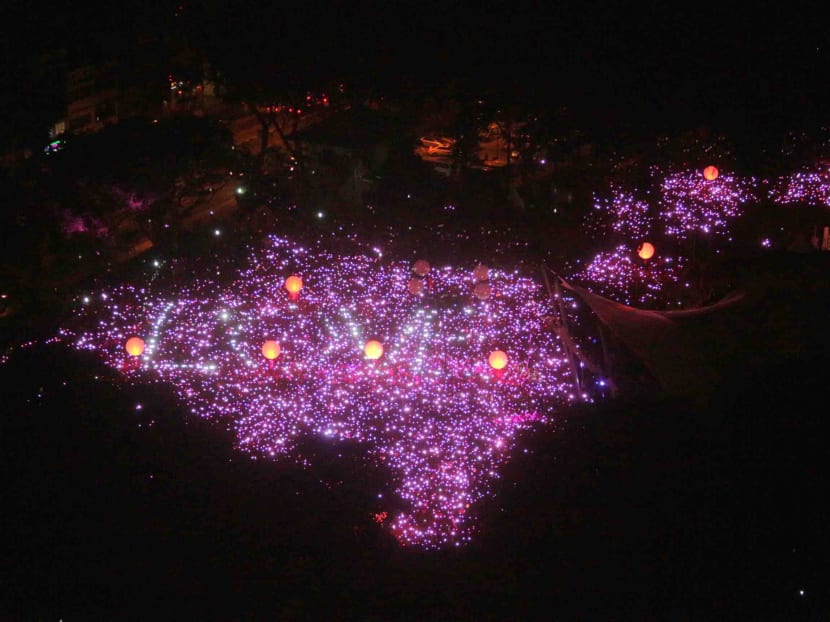The evolution of S’pore’s Speakers’ Corner
SINGAPORE — The possibility of setting up a Speakers’ Corner was first mooted by the late Lee Kuan Yew, when he was Senior Minister, in an interview with New York Times columnist William Safire, published in February 1999.
SINGAPORE — The possibility of setting up a Speakers’ Corner was first mooted by the late Lee Kuan Yew, when he was Senior Minister, in an interview with New York Times columnist William Safire, published in February 1999.
Mr Lee shared that politicial scientist Joseph Nye — dean of Harvard’s John F Kennedy School of Government and adviser to the Singapore government at the time — had suggested that Singapore set up a legal public-speaking area similar to Speakers’ Corner in London’s Hyde Park. Mr Lee said that Singapore would probably take on the suggestion.
However, then-Prime Minister Goh Chok Tong was initially not keen on the idea, as Singapore was in the grips of a recession and the time was not right. Nevetheless, in March 2000, Mr Goh announced he had given the go-ahead for a Speakers’ Corner.
On his change of mind, Mr Goh explained: “I wanted to concentrate on the economy. Six months ago, I was not certain if the economy was going to recover so strongly. Now it’s recovered, I thought it’s timely for us to take a fresh look and see where the Speakers’ Corner should be, and how to bring it forward.”
A month later, then-Home Affairs Minister Wong Kan Seng spelt out the details: It will be at Hong Lim Park and speeches at the corner will be exempted from licensing requirements under the Public Entertainments Act.
Citizens can go there seven days a week from 7am to 7pm to speak on any subject but he or she must abide by the general laws of the country. Specifically, a speaker must be a Singapore citizen, must register himself before speaking, and must not make a speech that causes racial or religious enmity.
Mr Wong said: “The corner should not become an avenue for foreigners to pursue their own agenda whether in respect of their domestic issues, or those of other countries, including Singapore’s.”
The Speakers’ Corner was opened on Sep 1, 2000, to much fanfare. More 20 speakers turned up on first day, talking about a range of issues including ministerial salaries, baby-bonus measures, municipal and even personal concerns. By November that year, however, the crowds dwindled.
The police clarified in December 2000 that it cannot be used for demonstrations or marches without a permit. They added that the freedom to speak at the venue without applying for a Public Entertainment licence does not give anyone the right to shout slogans or make wild gesticulations.
The clarification came after some activists, including the late Opposition leder J B Jeyaretnam, held up a large banner and rallied against the Internal Security Act.
In August 2004, the police announced new rules doing away with licensing requirements for indoor public talks and allowing more activities at the Speakers’ Corner, but these apply only to Singaporeans. A Public Entertainments & Meetings licence would still be needed if foreign speakers, lecturers or organisers are involved in public talks. Foreigners cannot be involved in exhibitions and performances at Speakers’ Corner.
The events must steer clear of issues related to race or religion, and talks must be in the four official languages or a related dialect. to ensure To ensure that an event does not escalate into a demonstration or protest march, participants cannot carry placards or banners, use microphones, loud hailers or other sound amplification devices, and there cannot be any assembly or procession.
In August 2008, the rules for Speakers’ Corner were relaxed further — including allowing outdoor demonstrations. Singaporeans can organise and participate in any demonstration there — except those that involve race and religion — without having to obtain a police permit.
Permanent residents can also participate in these demonstrations, in recognition of the stake they have in Singapore. But they have to apply for a permit if they wish to give a speech or organise a protest themselves. Foreigners will have to apply for a permit to conduct or participate in any activity.







